Love Letter Review
From the creative mind of Seiji Kanai, Love Letter is a Japanese card game that has taken tabletops by storm. Elegant in design yet packed with intrigue, this quick deduction game has players vying to deliver their love letter to the Princess while navigating a court full of meddling royals, advisors, and guards. Its compact nature and engaging bluffing make it one of the most celebrated microgames of the modern era.
What is Love Letter?
At its core, Love Letter is a fast-paced deduction card game for 2–6 players. Each player holds just one card at a time, drawing a second on their turn and then choosing one to play. The aim? Be the last one standing—or hold the highest value card when the round ends. But here’s the twist: each character card has a unique power, from peeking at opponents’ hands to swapping cards or eliminating players outright. It’s a game of reading the table, bluffing confidently, and sometimes playing the odds with fingers crossed.
With just 21 cards, 13 tokens, and a charming cloth bag, the game offers quick rounds and addictive replayability. Its minimalist style, classic deduction gameplay, and whimsical court theme make it ideal for parties, travel, and introducing new players to modern board games.
Player Count: 2–6
Playtime: 15–20 minutes
Complexity: Light
Mechanics: Deduction, Hand Management, Player Elimination
Theme: Court Intrigue & Romantic Bluffing
Now that we’ve unfolded the parchment, let’s welcome Love Letter into the royal court of conversation and see what secrets it has to share.
How to Play Love Letter: A Regal Game of Risk and Romance
Me: Welcome to the show, Love Letter! You’ve charmed tables around the world with just 16 cards. Tell us—how exactly do you play?
Love Letter: Thank you for the warm welcome! It’s always an honor to explain the fine art of courtly persuasion. Allow me to walk you through the rules of my game.
At the heart of it, players are vying for the Princess’s affection by attempting to deliver their love letter to her. Each round begins with a small mystery—one or more cards are removed from the deck, unseen. Then, each player receives just one card.
On your turn, you draw one more card and then choose one of the two in your hand to play. That’s it—draw one, play one. The card you play activates its effect immediately, often targeting another player.
Me: So, it’s not just about the numbers on the cards?
Love Letter: Precisely. Each card represents a character in the royal court and has both a number and a special ability. Low-numbered cards—like the Guard—offer powerful effects, such as guessing another player’s card to eliminate them. But higher-numbered cards—like the Countess or the Princess—are valuable in scoring, though often come with a dangerous twist.
A round ends in one of two ways: if only one player remains (due to eliminations), they win the round. If the deck runs out, the player holding the highest-ranked card wins.
Rounds continue until one player earns enough tokens of affection—based on the number of players—to claim the Princess’s heart.
Me: A short game, but already full of intrigue.
Love Letter: That’s the spirit. Now, shall we explore how those little decisions lead to royal-level tension?
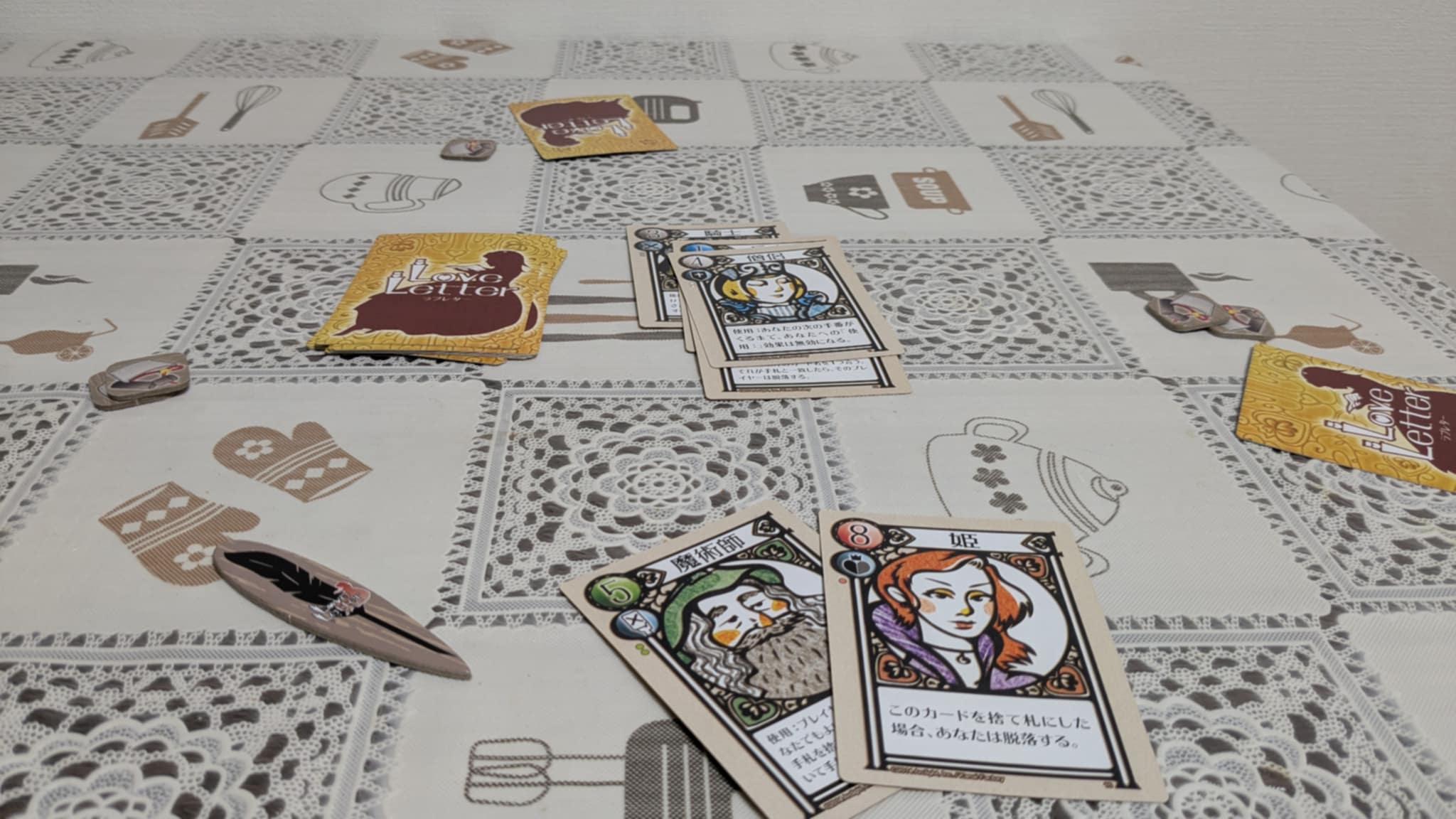
The Royal Court in Your Hand: How Card Powers Shape the Game
Me: You mentioned each card has a unique ability. Let’s talk about that—how do these powers actually drive the gameplay?
Love Letter: Ah, the intrigue begins with the cards themselves! Each one represents a noble or servant in the court, and their powers—while individually simple—combine to create rich, unpredictable rounds.
Take my most modest card, the Guard. She’s numbered 1 but holds immense influence. When played, you name another character and choose a player. If you guess correctly, that rival is immediately eliminated from the round. A sharp tool for the observant!
Now contrast that with my highest-ranking card: the Princess, number 8. She has no special action—in fact, she’s a liability. If you play her, you’re eliminated. So if you’re holding her, you’re at the mercy of your next draw. Bluffing, protecting, or redirecting suspicion becomes your defense.
Me: That’s quite a gap between the weakest and strongest values.
Love Letter: Precisely. Lower-value cards grant you immediate power and control—such as the Priest (2), who lets you peek at another player’s hand, or the Baron (3), who pits your hand’s value directly against another’s. But higher cards are tools of subtlety. The Countess (7), for instance, demands to be played if you’re also holding certain cards—revealing just enough to make your opponents raise an eyebrow.
Me: So no card is inherently good or bad—it depends on when and how you play it?
Love Letter: Indeed. It’s not about brute force. It’s about using each card’s quirks within the flow of the round. Timing, psychology, and a dash of luck—that’s where the game truly shines.
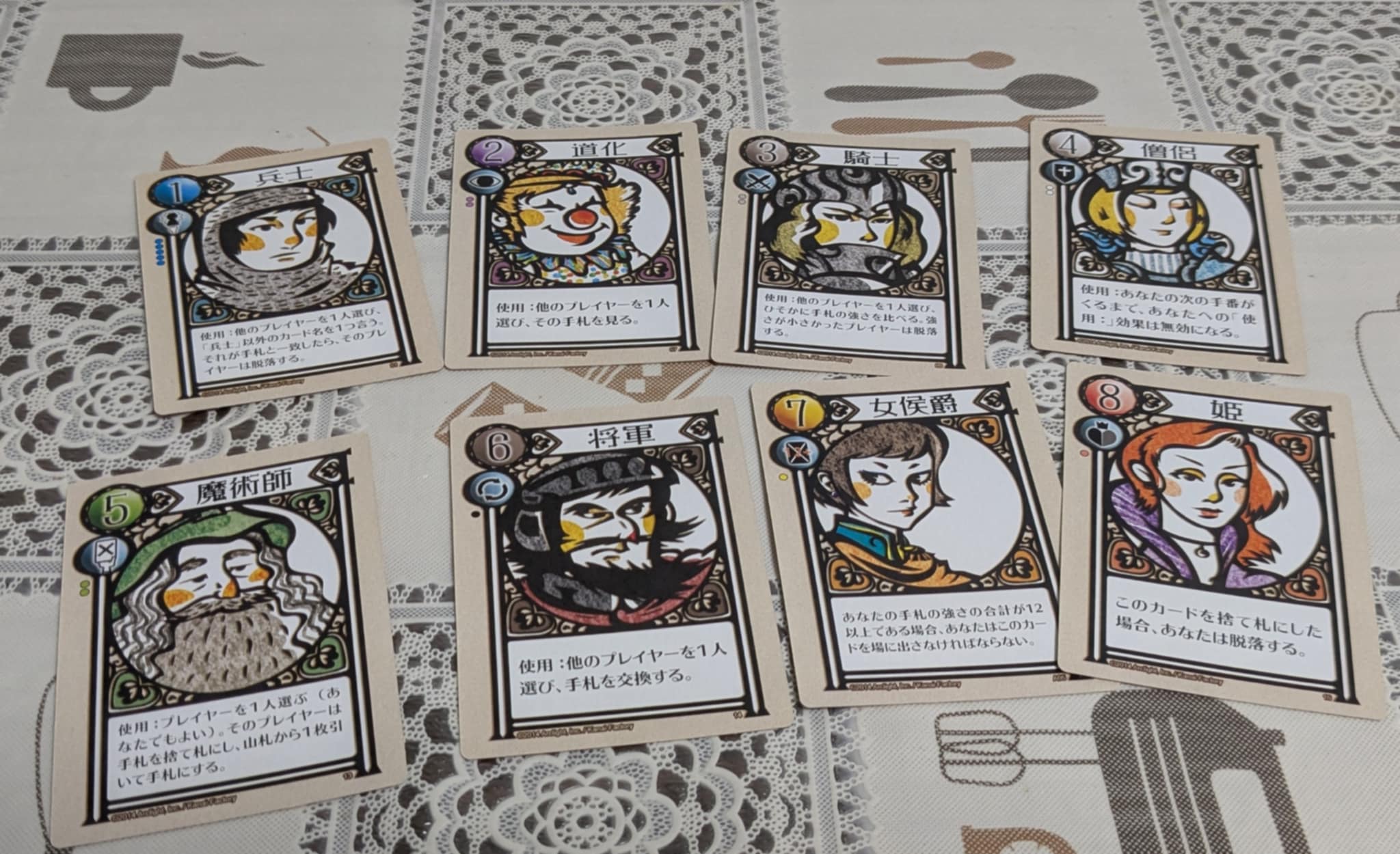
More Than Meets the Eye: Why Love Letter Lives Above the Table
Me: So your card powers are clever, no doubt—but I have to ask, what elevates you above being just a quirky set of effects? The individual actions aren’t flashy on their own.
Love Letter: An astute observation! You’re right—the magic isn’t just in the cards. It’s in the players. The game truly comes alive above the table.
You see, every round begins with mystery. Some cards are secretly removed from play. That one small twist means that players can never be entirely sure what’s out there. There’s always a fog of uncertainty, which invites bluffing, reading, deduction, and doubt.
Me: But you only play one card per turn. That’s not a lot of interaction, is it?
Love Letter: That’s the genius. One action—one moment—can tell a whole story. You play a Guard and casually guess “Priest”… but your tone, your timing, and the glint in your eye reveal more than the card ever could. Did you know something? Were you bluffing? Everyone’s mind starts spinning.
Or consider the Priest: you look at someone’s card and react—subtly, or not so subtly. Suddenly, everyone at the table is watching you. Suspicion flies. Alliances shift. Someone might even target you next, not because of what’s in your hand, but because of how you looked when you peeked.
Me: That sounds deliciously messy.
Love Letter: It is! The simplicity of the mechanics leaves plenty of space for social deduction, misdirection, and reading the room. In that sense, I’m not just a card game—I’m a performance. And the players? They’re the real stars of the court.
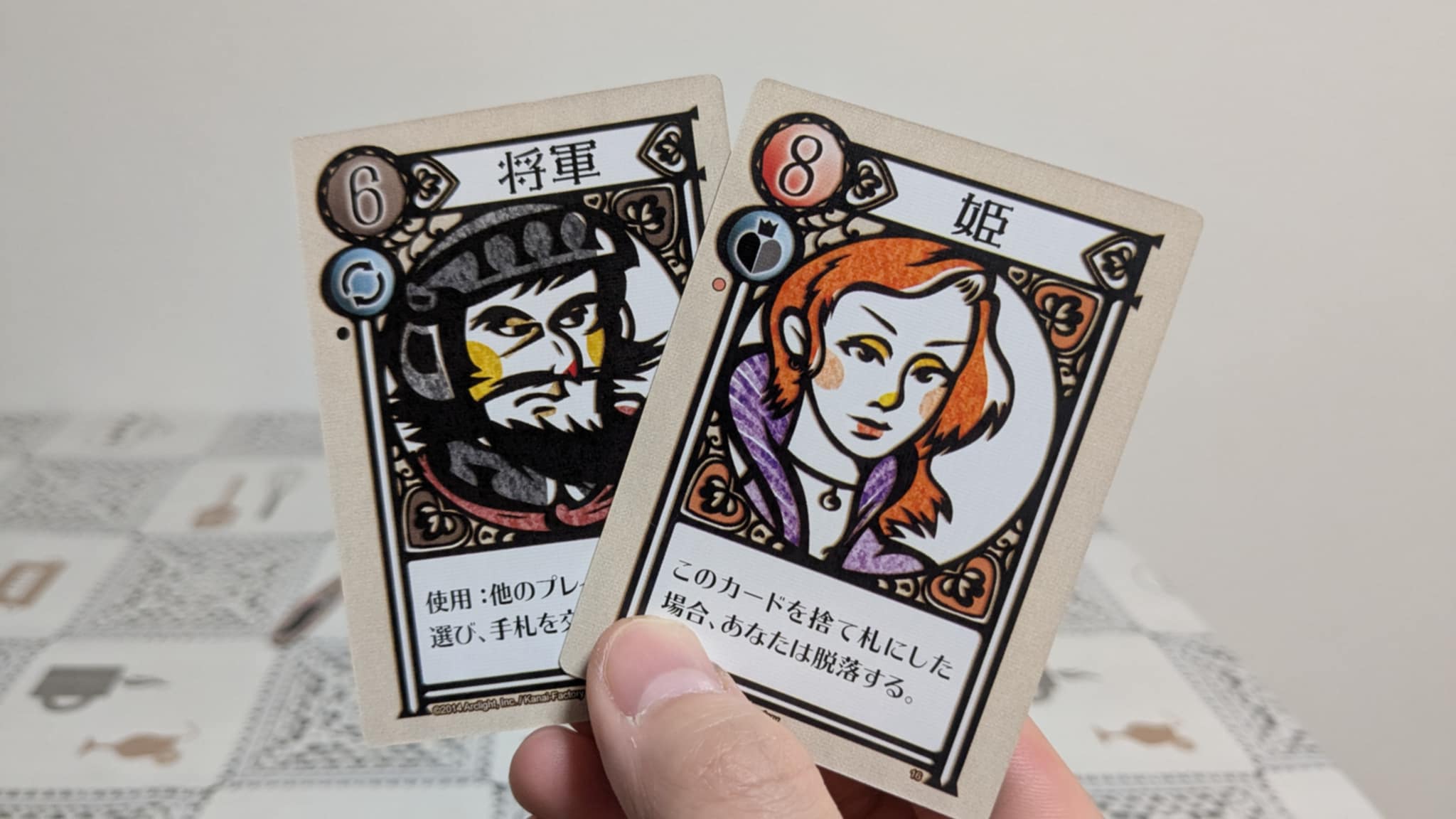
Why Love Letter Feels So Rewarding—Especially When Someone Misses
Me: So far, you sound clever. But do you make me feel clever?
Love Letter: Constantly. That’s one of my best tricks. Because when you pull off a play—especially one that isn’t just a wild guess—it feels absolutely brilliant.
Let’s say you play a Guard and name the right card. There’s no way to know for sure. You’ve scanned the table, checked what’s been played, maybe caught a glance at someone’s hesitation, and taken the shot. And when it lands? Euphoria. Not from certainty, but from risk.
Me: I’ve seen that moment! Someone’s laughing, another player’s jaw is on the floor.
Love Letter: Exactly. You’re piecing together imperfect information. You know which cards are out, you see what someone might be holding—and then you take your one chance before the info evaporates.
The beauty lies in how short-lived the knowledge is. Even if you see a card via the Priest or guess correctly once, if you don’t act immediately, it’s gone. Cards shift, hands change. That window of clarity closes fast, making each good move feel precious.
But I’m more than just clever math. What really elevates me is how personal those reads feel. When you successfully eliminate someone because of a raised eyebrow or a suppressed smirk, you feel like a genius. Like a court tactician who saw through the veil.
Me: That sounds almost… intimate?
Love Letter: Very much so. It’s not just deduction—it’s connection. Every turn feels alive because you’re watching each other. Even when someone else plays, you’re drawn in, waiting, watching, wondering if it’s your name that’ll be guessed next.
And when you barely dodge elimination? Sometimes that near miss is even more thrilling.
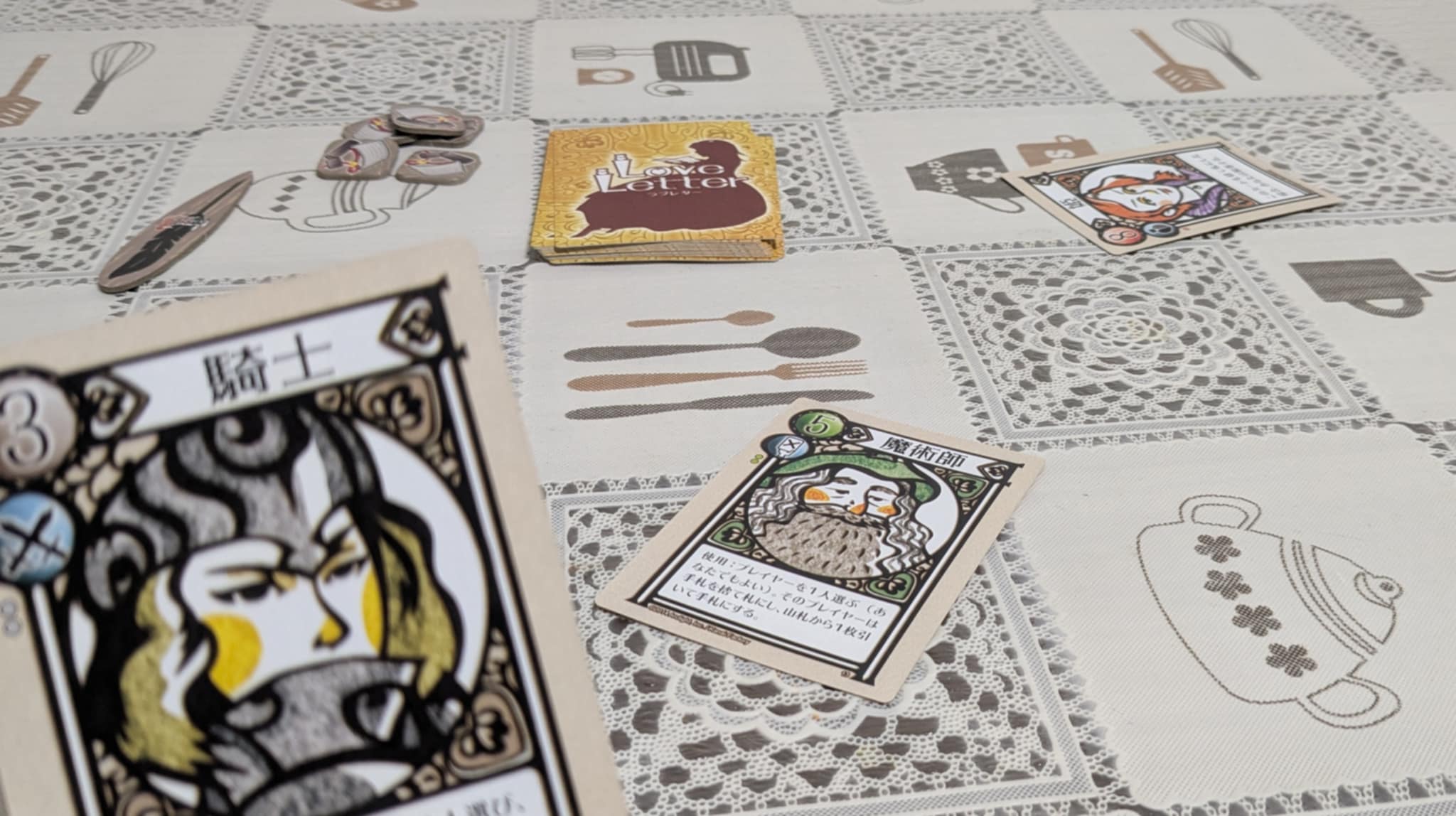
Love Letter Embraces Randomness—and That’s Why It Works
Me: You’ve been talking a lot about deduction and clever reads—but honestly, aren’t you, well… kind of random?
Love Letter: Oh, absolutely. I’m chaotic. Delightfully so. And I make no secret of it.
There’s no denying it: the luck of the draw plays a huge role in how I unfold. You might get eliminated from a round without ever taking a turn. You might draw the perfect card at the perfect moment. But here’s the thing: I don’t pretend to be a grand strategy game. I’m not a cold, calculating contest. I’m a quick, vibrant spark of fun.
Me: That feels refreshing. You’re not trying to be something you’re not?
Love Letter: Precisely. I’m built for laughs, tension, and moments that make people shout across the table. The randomness isn’t a flaw—it’s a feature. Because it levels the playing field. Anyone can win. Anyone can make a brilliant play, or be hilariously undone by bad luck.
I know how short my rounds are. I’m designed to be a sprint, not a marathon. That’s why I don’t decide the winner in just one round—I’m a race to a certain number of victories. That repetition softens the impact of random swings. Over multiple rounds, smart reads and social savvy start to shine through.
So no, I’m not built for hardcore competition. But I am built for joy. For tension that resets quickly. For moments that make everyone lean in, then burst out laughing.
Me: You’re not about controlling the chaos—you’re about enjoying it.
Love Letter: Exactly. I’m not here to crown a genius. I’m here to entertain the court.
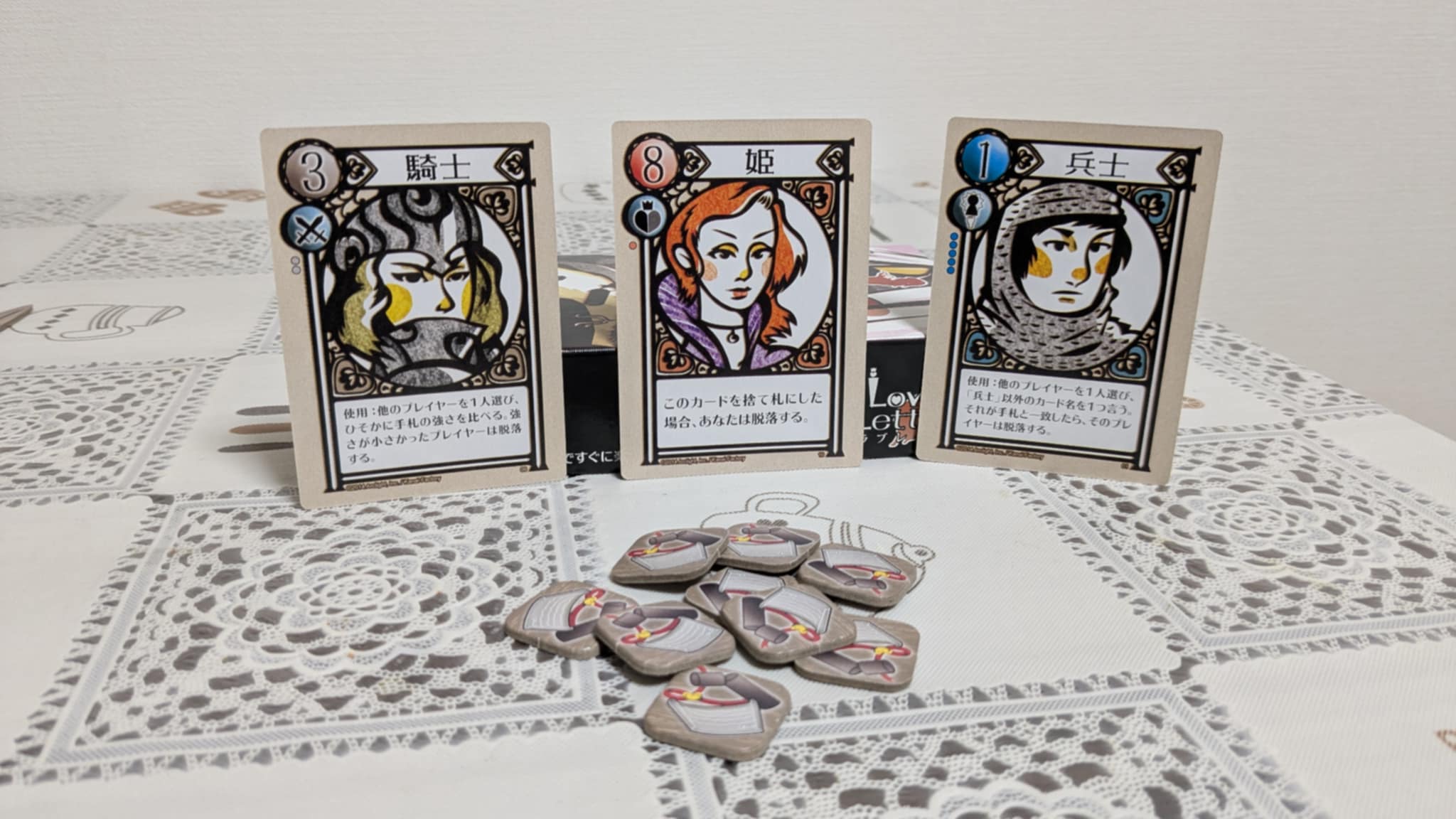
Drawbacks That Are Easy to Forgive
Me: So, noble game—are there any chinks in your shining armor?
Love Letter: Ah, of course. Even I, royal as I may be, have my imperfections.
Let’s start with the obvious: the theme. While I wear the elegant costume of a courtly love story—sealed letters, noble guards, wistful princesses—I must admit, it’s all surface-level. The gameplay doesn’t reinforce the theme in any meaningful way. You’re not really courting anyone. You’re just trying not to get knocked out by a lucky guess.
Me: That would explain why there are so many different versions of you—Batman, Lovecraft, even anime spinoffs…
Love Letter: Precisely. My core design is so abstract and flexible that any theme can be wrapped around me. It’s charming, sure, but not immersive.
Now, about player count. Technically, I can host from two to six suitors, but not all courts are created equal. At two players, the tension fades—there’s just not enough hidden information for those delicious social reads. At six, survival becomes a battle of luck, with too many players and too few cards to build strategy.
I shine brightest in a group of four. There, the balance of deduction, bluffing, and banter hits just right.
Me: So you’re not perfect—but you are honest about what kind of game you are.
Love Letter: That’s my charm. Modest in depth, regal in delivery. And always ready for one more round.
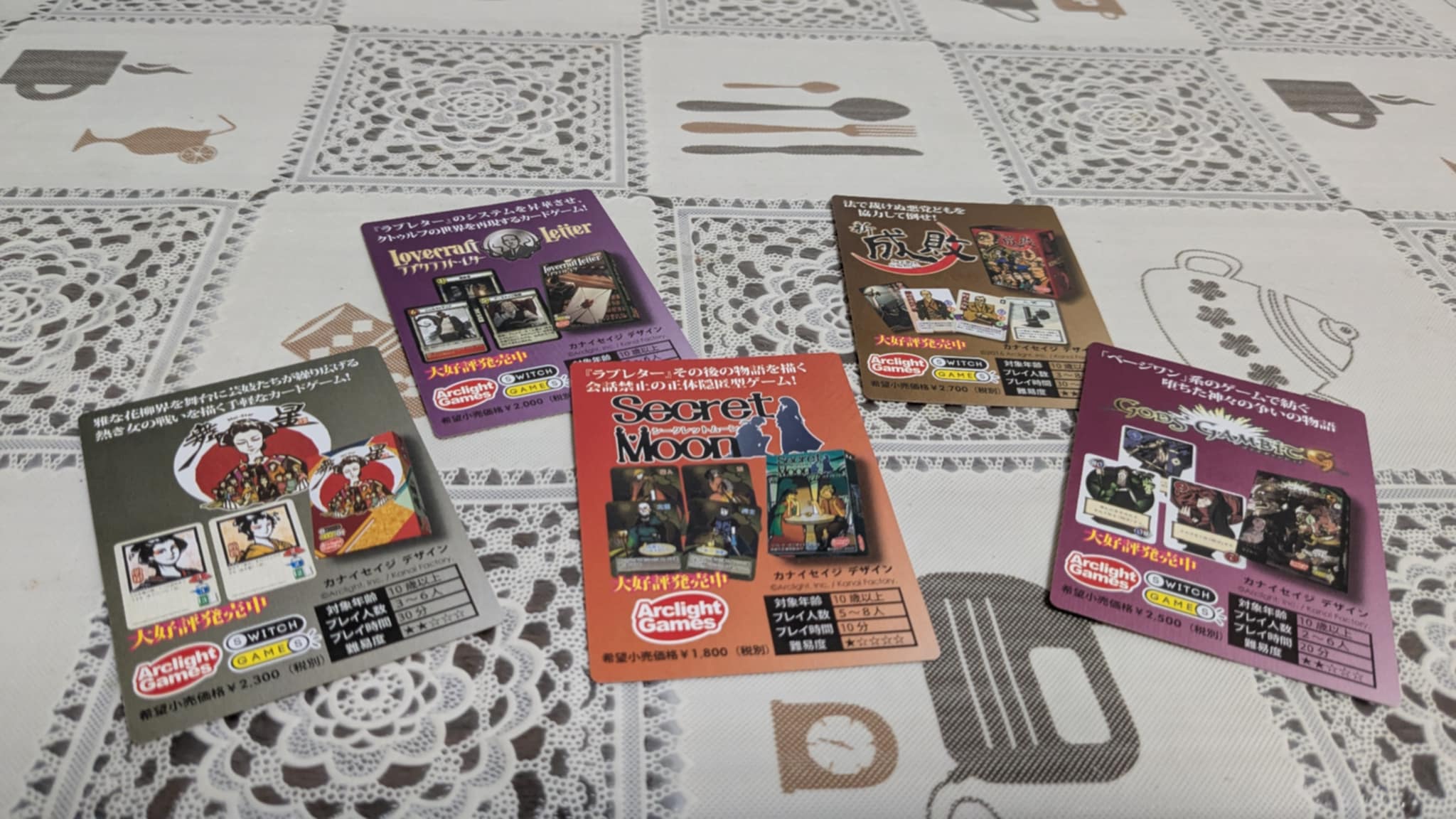
Final Verdict: One Last Word Before the Letter is Sent
Me: Before we end, any final thoughts you’d like to leave our readers with?
Love Letter: Only this—I am a card game that knows what I am and leans into it fully. I’m not here to dazzle with strategy or crunch your brain. I’m here to make people laugh, gasp, bluff, and cheer.
In a world full of heavy euros and complex battle plans, I’m the refreshing reset button. I bring people together for ten-minute bursts of drama, mystery, and occasional brilliance.
Me: So you’re more of a party companion than a competitive tournament contender?
Love Letter: Precisely. I belong on the table between drinks, before dinner, after dessert—whenever friends want something quick, clever, and unexpectedly thrilling.
You don’t play me because I’m deep. You play me because I’m fun.
Me: Thank you for joining us, Love Letter. You may not have the most strategic mind in the palace, but you’ve certainly captured the hearts of players around the world.
Love Letter: My pleasure. Now, if you’ll excuse me, I have a princess to charm.

Conclusion
Love Letter is a game that proves less can truly be more. With only 16 cards, it crafts a dynamic and thrilling experience that feels far bigger than its box suggests. It’s not a game of long-term strategy or deep calculations—but it’s not trying to be. Instead, Love Letter delivers sharp moments of tension, hilarious misplays, and the joy of reading your friends like a book.
Its social deduction elements give it staying power, and its fast rounds ensure that even when luck knocks you out early, you’re never out of the fun for long. Whether you’re playing with seasoned gamers or people new to the hobby, it always brings laughter and light competition to the table.
Alternative Recommendations:
If you’re looking for a similar vibe, Scout offers clever decisions with a wonderfully original mechanic. Want even more chaos and laughter? 6 nimmt! turns card play into pure party fun. And for those who love the tension of bluffing and deduction, Skull strips it all down to a battle of nerves.
Final Rating: 9.5/10
Pros:
- Simple card game, really accessible
- Full of fun, exciting moments
- Incorporates social interaction wonderfully and elevates the experience
Cons:
- No theme
- Not great at minimum or maximum player count
A tiny envelope of joy—Love Letter is one of the purest card games ever made.

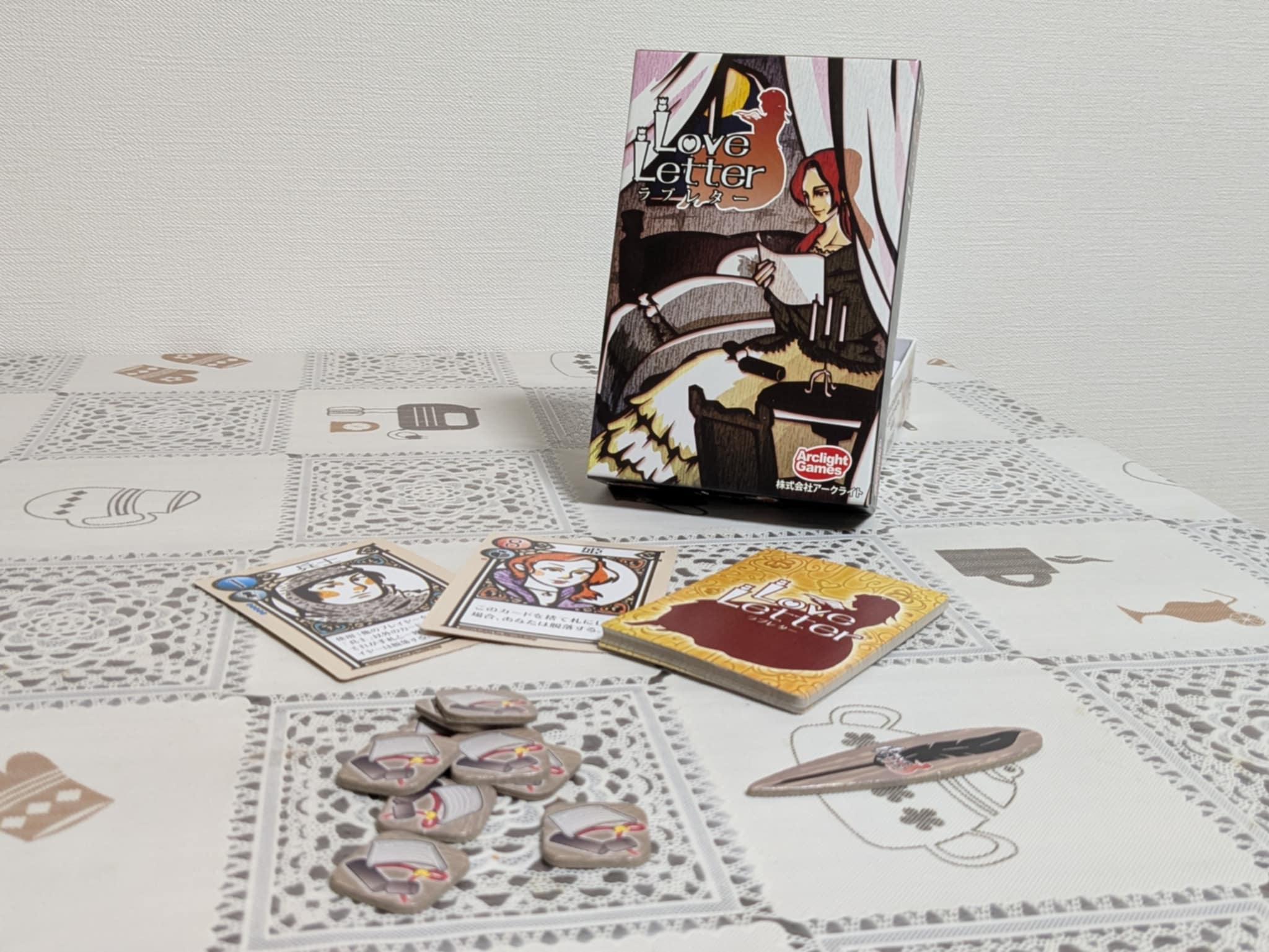
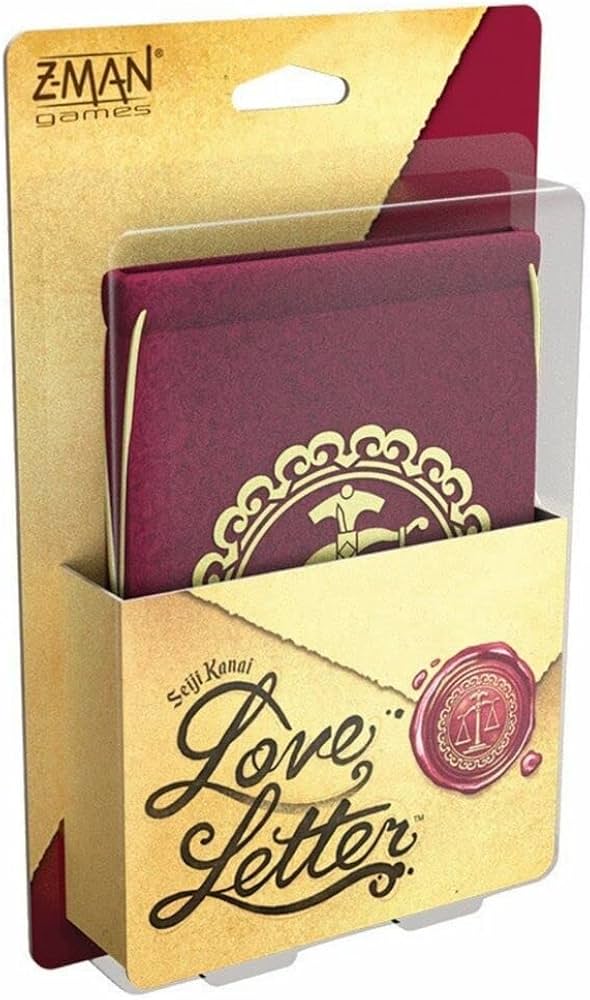
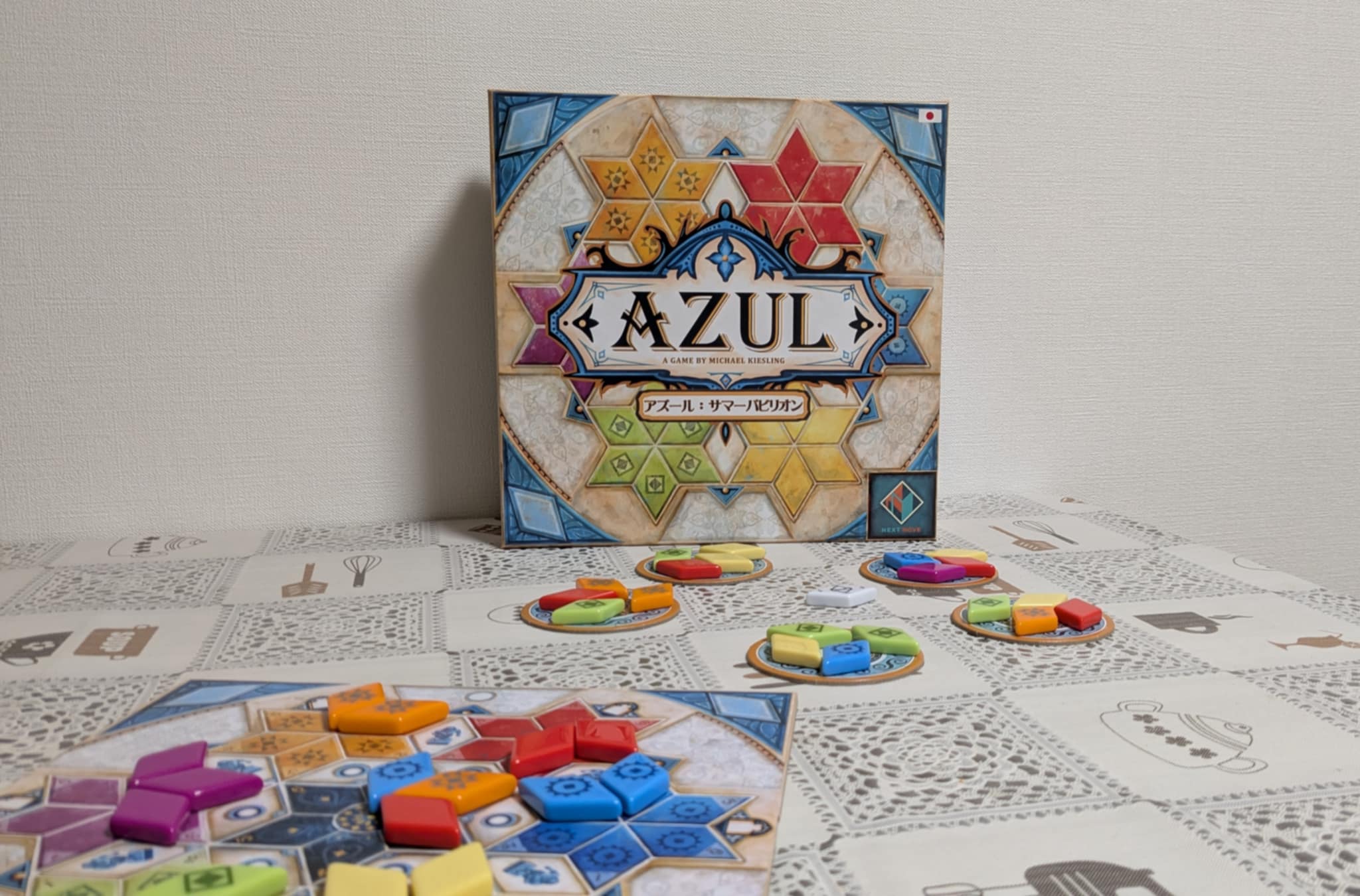
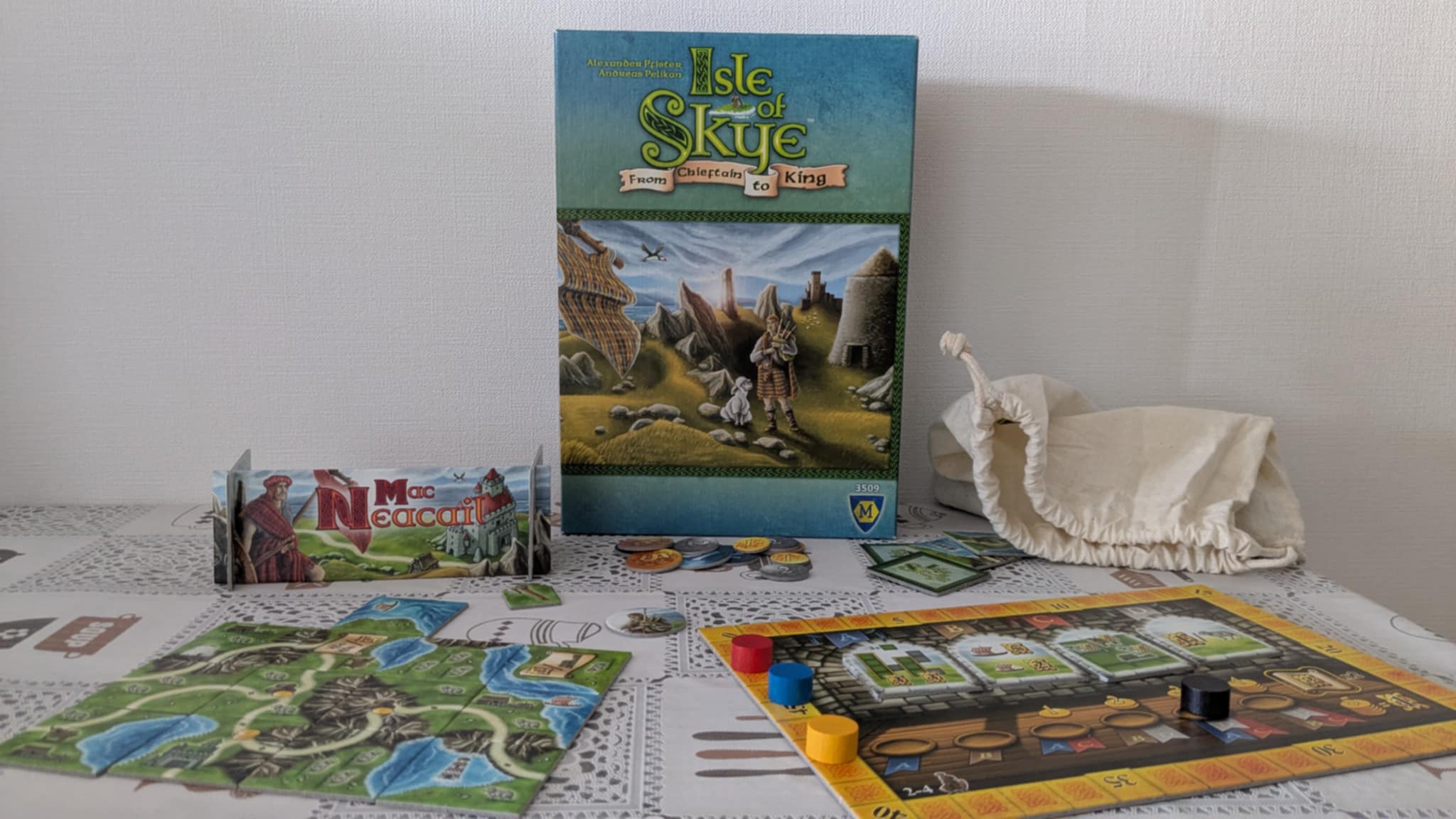
Leave a Reply